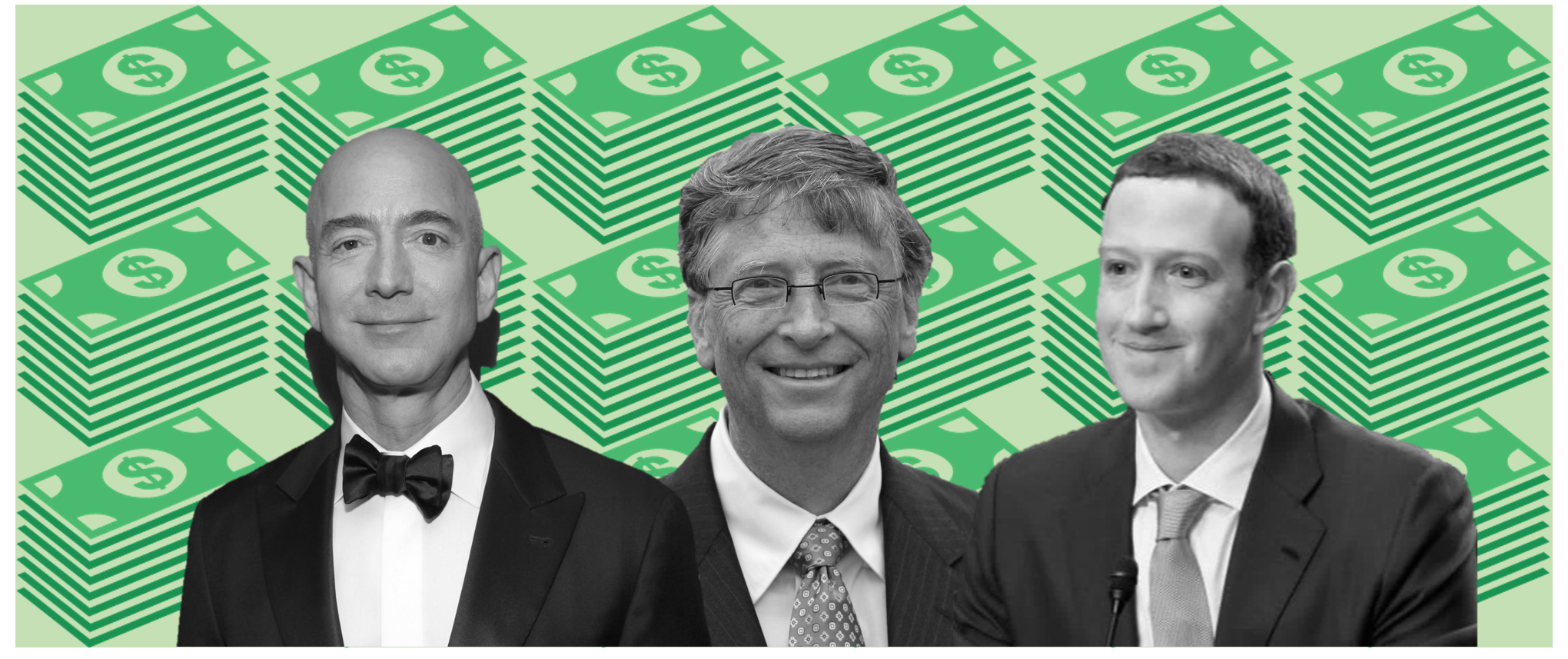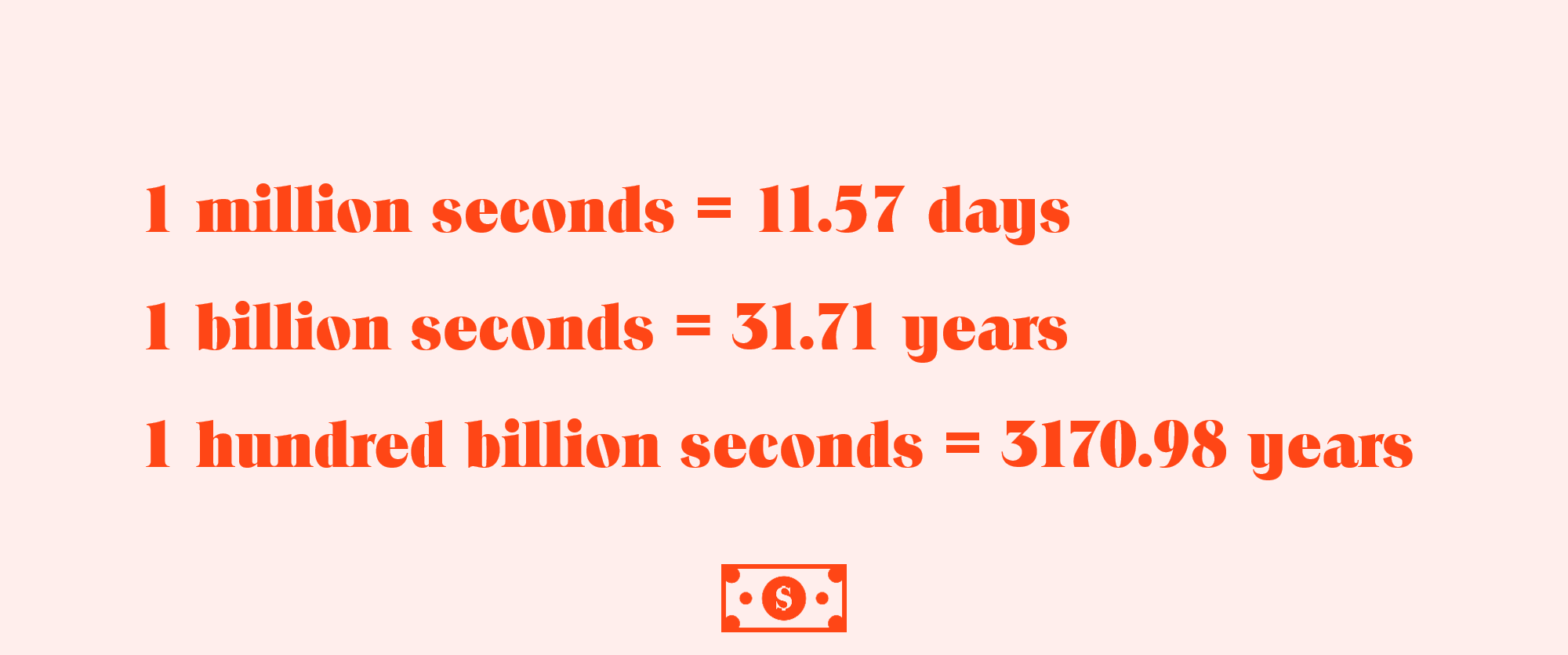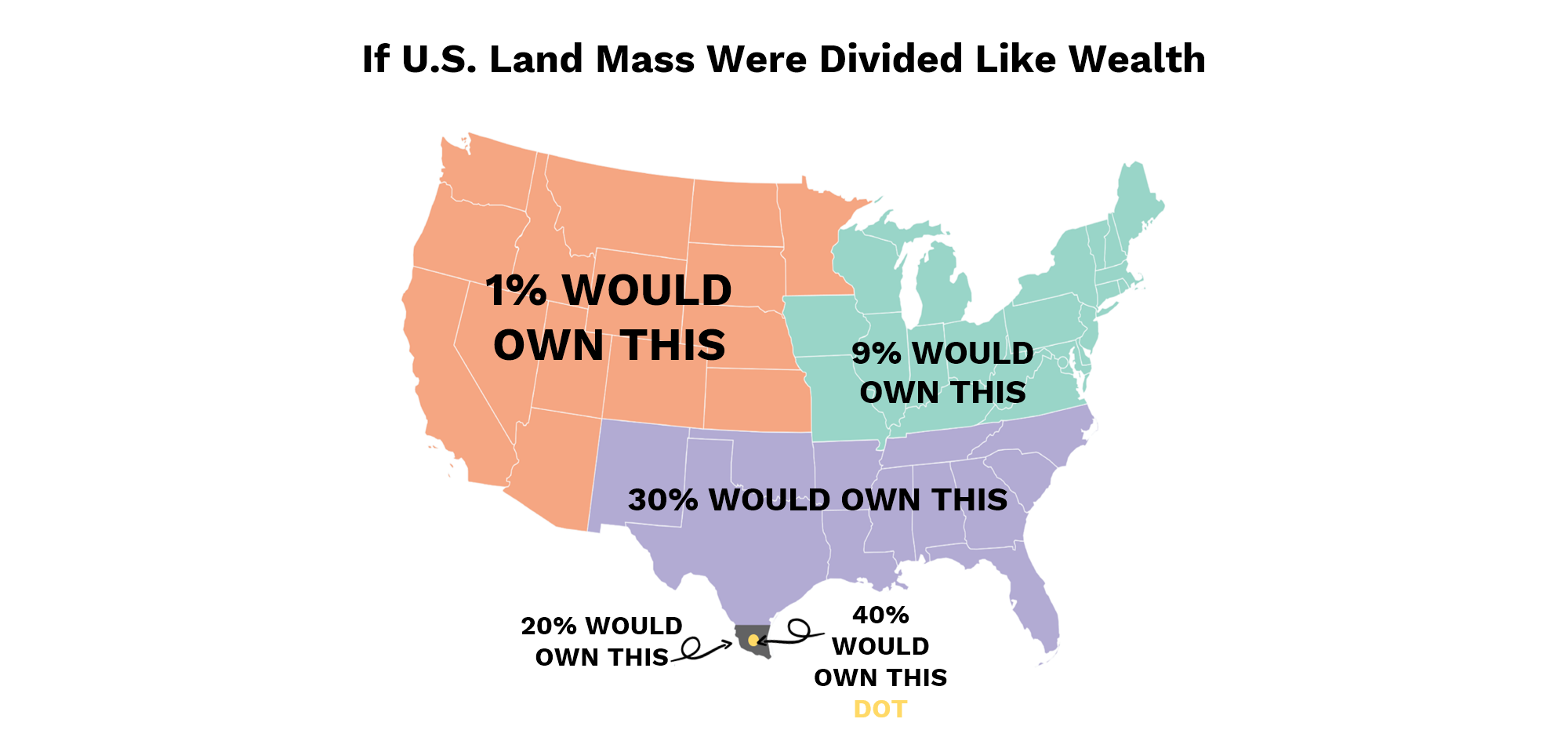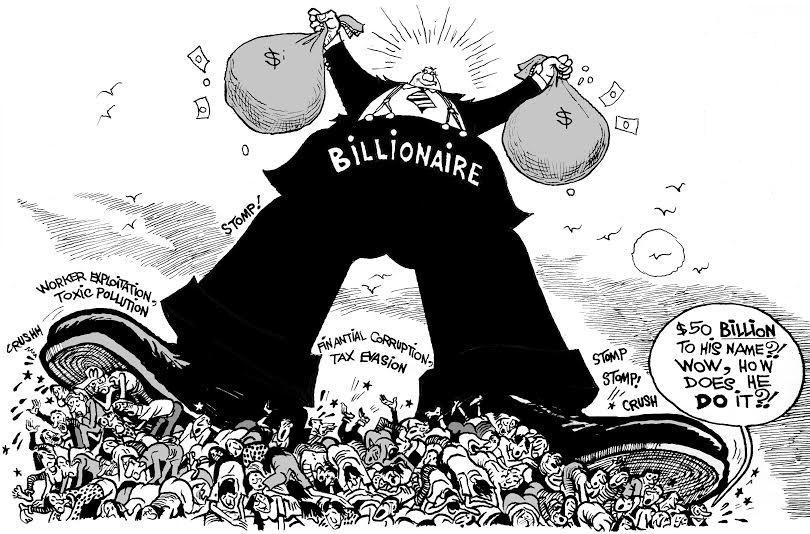by Allison Lee

There are many things that should not exist on our planet: socks-and-sandals combination, pants on the ground trend, people who refuse to wear masks amidst a pandemic… and billionaires.
Earlier this month, it was announced that Mark Zuckerberg, father of Facebook and suspected alien lifeform, became the third centibillionaire in the world, after Jeff Bezos and Bill Gates. What in the name of sweet green cash does that even mean?
The term “centibillionaire” is attributed to a person when their wealth surpasses one hundred billion. A lot of us can barely grasp the concept of one million, let alone a hundred billion, so here’s a conversion that hopefully puts things into perspective:

You ask: “What’s the big deal? Shouldn’t successful people be able to reap the profits of their hard work and effort? If they made the money, they are entitled to keep it.”
And to that, I quote Alexandria Ocasio-Cortez: “No one ever makes a billion dollars. You take a billion dollars.”
The United States thrives on capitalism. Next to In-N-Out and Hollywood, it is known for the way business owners take the reins. The country generates a great amount of wealth annually, yet the money is going into the pockets of select individuals, preparing a hotbed for economic polarization to take root.
In case you haven’t been keeping up with the billionaires of the United States, the five richest men own more than the bottom 50% of American citizens. Extrapolating the problem globally, all of the world’s 2095 billionaires have more money than 4.6 billion people worldwide.
Allow me to go out on a limb here and say: With the combined wealth of Jeff Bezos, Bill Gates, Warren Buffet, and Mark Zuckerberg, we can very well eradicate global problems like famine and poverty, pay for healthcare, slow down global warming, and allow every single child to graduate with tertiary education – and there’d still be leftovers up for grabs.
You’ve heard the phrase “the rich get richer and the poor get poorer”, well, that’s exactly what’s happening. Wealth disparity has been a long-standing and ever-growing issue in America, and by the looks of things, it isn’t going away anytime soon.

In this year’s presidential race, Senators Bernie Sanders and Elizabeth Warren were both strong advocates for the wealth tax, which would essentially have billionaires taxed more than the everyday people do. Sanders, right before he dropped out of the race, called these billionaires “a moral and economic outrage”. Throughout their campaigns, both Senators managed to collect overwhelming support from the working class because of their stance on billionaires and economic equality, which goes to show how tired people are of seeing the top one percent hoard the nation’s wealth.
#1 Follow The Money
First, let’s talk about how billionaires acquire their mass wealth. You could inherit the wealth (lucky you), trade information for it (highly discouraged), or mimic how our top three billionaires like it: monopoly.
It comes as no surprise that Amazon, Microsoft, and Facebook are at the top of their games, conquering their respective markets like nobody else’s business, making it difficult for new businesses to bud in the same industry. However, the dark side of monopoly depicts the exploitation of workers and unbearable working conditions. Since employees of monopolistic companies don’t have many alternatives to turn to, they stick to their undesirable jobs to pay the bills.
Jeff Bezos does not go down to his company every day to work an eight-hour shift and magically receives a cheque for millions. He simply employs the people he needs to carry out the job for him. These workers (be it for Amazon or any other monopoly out there) are often underpaid and work in ghastly settings. Since the pandemic has quarantined many, increasing the temptation to shop online, Amazon’s orders have only skyrocketed. This meant more warehouse work for its employees, fraught with risks of injury due to the company’s maintenance of efficiency.
If you have trouble believing that Amazon could neglect the well-being of its employees, believe the strikes. Employees went on a collective walkout during Prime Day 2019 demanding better treatment and benefits from the company. There are also insights that employees would work for hours on end without break, afraid that a slip of the mind would cost them their job.
We won’t go into too much detail about the grueling working conditions for many of these household names, but you get where I’m going with this. Simply put, billionaires are made possible with the exploitation and labor of the lower classes.

More importantly, billionaires get to spur into existence and keep that status because governments organize the economy and laws to side with the rich. It’s no surprise that when politics gets played, there will be winners – the rich – and there will be losers – the poor.
In 2017, the Trump administration introduced the Tax Cuts and Jobs Act, which has been giving billionaires a free pass to pay significantly less taxes than the working class. Though the act was promoted as an economic booster, it has been not-so-subtly stuffing the pockets of the rich.
The fairness or lack thereof in wealth distribution is not determined solely by hard work, as many of us are led to believe; rather, it depends on the policies set by people in power.
Now you know how billionaires keep their bellies and pockets stuffed.
#2 No One Needs or Is Worth A Billion
It doesn’t matter if you’re the brightest, most hardworking, or prettiest bulb in the world – nobody can ever be worth a billion dollars.
Have billionaires pumped their talents and ten thousand hours to build their empires to success? Yes.
Are their original ideas, all of which have made our lives undeniably more convenient, worth a billion dollars? No.
Like we have discussed, the majority of billionaire-status wealth is either inherited or taken via monopolistic means – meaning no singular human being will ever live up to that mind-boggling amount.
Nobody needs a billion dollars either. If that amount sat in your bank account from the day you were born and you live to see a hundred years old, you could afford to spend 27,000 dollars a day, which is more than necessary. Even the most lavish and luxurious-living individual will never expend a billion dollars in their lifetime.
Let’s circle back to everyone’s ‘favorite’ Amazon King. During the pandemic, Jeff Bezos raked in 34.6 billion dollars from quarantined-shoppers. The mogul could purchase 6 Primer Leagues (valued at 5.7 billion) and still have profits to pocket. If that doesn’t make you uneasy, well, you must be one of the luckier ones.
What goes up must come down, and these tycoons should be held to a different standard in terms of taxation for the extra lump in their banks to go to people who truly need them.
#3 Money Is Scarce, Billionaires Excluded
Since we’re zooming in on the United States, let’s look at the statistics. In 2019, while our billionaire buddies were lounging away in their private jets and bungalows, money stashed away in some off-shore account (probably in the Cayman Islands), there were 567,715 people classified as homeless. As for the unemployed? 5.9 million.
Not to mention students who have to work part-time and pull all-nighters to graduate and pay off their colleges, single parents who bust their days at three different jobs to make ends meet for their children, and others whose hardships might be unfamiliar to us.
Ever since the economic effects of the pandemic kicked in, things only got worse: workers were laid off, those who didn’t get the boot had their wages cut. Keep in mind, this is only the United States. When we zoom out on the world map, people are scraping together what few cents they have to wait the day over.
People are dying simply because they can’t afford to live, yet these – excuse the bluntness – rich, white men are reaping capitalism and rolling comfortably in stacks of green. What the majority of people need direly to survive, these affluents bathe in excess and luxury.
Doesn’t it make sense that what is in excess for one should be used to save another?
As much as I hate to end every article with the same argument, it has to be made: The problem with billionaires’ existence isn’t just a cry for wealth tax, it’s a cry for a fix to a broken system, a system that tips its scales in favor of the rich. However, until the government decides to stop hiding behind billionaire cash cows, it is up to us people to hold billionaires accountable for their actions both inside and outside of their businesses.
The status of ‘billionaire’ should not be allowed to exist so long as there are people who have to sleep on sidewalks, scavenge for food in dumpsters, salvage necessities second-hand, and wonder if their body can sustain them to see tomorrow. But I’ll ask the question: Will we ever live to see this change?